Digital marketing analytics is a rapidly growing field that offers exciting careers for those passionate about data and marketing. This guide provides a comprehensive overview of digital marketing analytics jobs, including the specializations, the skills required, and the career growth opportunities available. If you’re looking for a challenging and rewarding career that allows you to make a real impact, then digital marketing analytics might be the perfect fit for you.

What are Digital Marketing Analytics Jobs?
Introduction to Digital Marketing Analytics Jobs
Digital marketing analytics jobs are those that focus on measuring and analyzing the performance of digital marketing campaigns. These professionals act as data detectives, using their skills to translate website traffic, customer behavior, and other digital marketing metrics into actionable insights.
Here’s a closer look at what they do:
Data Collection and Analysis:
- They gather data from various sources like website analytics tools (e.g., Google Analytics), social media platforms, and marketing automation software. They then analyze this data to understand customer behavior, campaign effectiveness, and identify areas for improvement.
Performance Measurement:
- They track key performance indicators (KPIs) like conversion rates, click-through rates, and return on investment (ROI) to measure the success of digital marketing campaigns.
Insights and Recommendations:
- They don’t just crunch numbers! They translate their analysis into clear, actionable insights and recommendations. This could involve suggesting changes to website design, optimizing ad copy, or retargeting specific audience segments.
Reporting and Communication:
- They create reports and presentations to communicate their findings to stakeholders, including marketing managers, executives, and even clients.
Importance of digital marketing analytics in today’s business landscape:
In today’s digital world, businesses rely heavily on online marketing to reach their target audience. But simply throwing money at online ads isn’t enough. You need to be able to measure what’s working and what’s not.
This is where digital marketing analytics comes in. By providing data-driven insights, these professionals help businesses:
Optimize campaign performance:
- They identify areas for improvement and suggest strategies to maximize ROI.
Make data-driven decisions:
- They translate complex data into actionable insights that inform marketing strategies across the board.
Gain a competitive edge:
- By understanding customer behavior and campaign effectiveness better, businesses can stay ahead of the curve.
Allocate resources effectively:
- They help businesses focus their marketing efforts on tactics that are most likely to yield results.
In short, digital marketing analytics is essential for any business that wants to succeed in the digital age. It’s a field that’s constantly evolving, offering exciting opportunities for those who are passionate about data and marketing.
Types of Digital Marketing Analytics Jobs
Digital marketing analytics is a broad field, and there are many different specializations within it. Here’s a look at some of the most common types of digital marketing analytics jobs:
1. Data Analyst

- Data analysts are the backbone of digital marketing analytics. They are responsible for collecting, cleaning, and analyzing data from a variety of sources. They use their statistical skills to identify trends and patterns that can be used to improve marketing campaigns.
2. Marketing Analyst

- Marketing analysts take the data analysis a step further by using the insights from data analysts to develop and implement marketing strategies. They track the performance of marketing campaigns and recommend changes to improve results.
3. SEO Analyst

- SEO analysts focus on improving the search engine ranking of a website. They use data to identify keywords that potential customers are searching for and then optimize website content and structure to rank higher in search engine results pages (SERPs).
4. Social Media Analyst
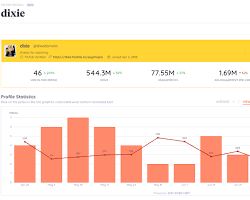
- Social media analysts track the performance of social media campaigns. They analyze data on things like engagement, reach, and click-through rates to see what content is resonating with the audience and what needs to be improved.
5. Email Marketing Analyst
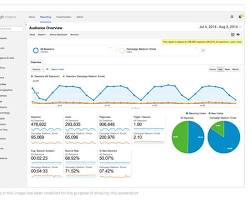
- Email marketing analysts track the performance of email marketing campaigns. They analyze data on things like open rates, click-through rates, and unsubscribe rates to see what email content is performing well and what needs to be improved.
6. Web Analytics Specialist
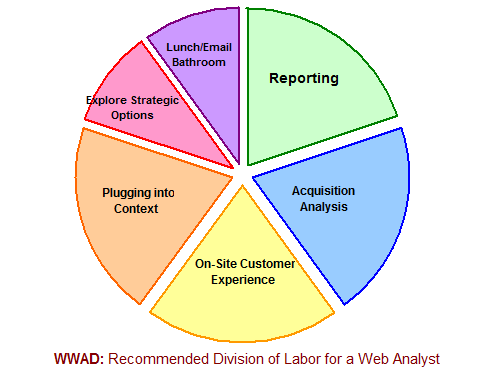
- Web analytics specialists use data to track website traffic and user behavior. They analyze data on things like page views, bounce rates, and time on site to identify areas where the website can be improved to convert more visitors into leads or customers.
These are just a few of the many different types of digital marketing analytics jobs available. The specific skills and experience required will vary depending on the specific job, but all of these jobs require a strong foundation in data analysis and marketing principles.
Skills Required for Digital Marketing Analytics Jobs
To thrive in the dynamic world of digital marketing analytics, you’ll need a blend of different skillsets. Here’s a breakdown of the key qualities that employers seek:
1. Analytical Skills
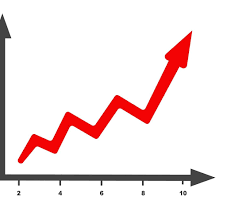
- Data Analysis: Being able to collect, clean, and analyze data from various sources is fundamental. You’ll need to understand statistical concepts and be comfortable working with data analysis tools.
- Problem-Solving: Marketing campaigns are complex ecosystems, and things don’t always go according to plan. Your analytical skills will be crucial in identifying problems, understanding root causes, and developing solutions based on data insights.
- Critical Thinking: Don’t just accept data at face value! You’ll need to critically evaluate information, identify trends and patterns, and draw insightful conclusions.
2. Technical Skills

- Web Analytics Tools: Proficiency in industry-standard web analytics tools like Google Analytics is a must. This allows you to track website traffic, user behavior, and campaign performance.
- Data Visualization Tools: Data storytelling is key! Being able to translate complex data sets into clear and compelling visuals (charts, graphs) is essential for communicating insights to stakeholders. Tools like Tableau or Power BI can be helpful.
- SQL: While not always required, knowledge of SQL (Structured Query Language) gives you a powerful edge. It allows you to extract and manipulate data from databases for deeper analysis.
3. Communication Skills

- Written Communication: You’ll be creating reports, presentations, and data-driven recommendations. The ability to communicate complex information clearly and concisely in writing is essential.
- Verbal Communication: Be ready to present your findings and recommendations to audiences with varying levels of data literacy. You’ll need to explain technical concepts in an understandable way and answer questions confidently.
- Presentation Skills: Crafting clear and visually engaging presentations is key to getting buy-in for your recommendations.
4. Creativity

- Out-of-the-Box Thinking: Digital marketing is a constantly evolving landscape. The ability to think creatively and come up with new ways to analyze data and solve problems is valuable.
- A/B Testing: Don’t be afraid to experiment! Creativity comes into play when designing A/B tests to optimize campaigns and website elements.
By honing these skills, you’ll be well-positioned for a successful career in digital marketing analytics.
Educational Background and Qualifications for Digital Marketing Analytics Jobs
While a formal education isn’t always mandatory, a strong foundation in relevant fields can give you a significant edge in the job market. Here’s a look at the educational backgrounds and qualifications that employers typically look for:
Degrees and Certifications:

- Bachelor’s Degree: A bachelor’s degree in marketing, business administration, statistics, computer science, or a related field is a common path. These programs provide a solid foundation in marketing principles, data analysis, and research methods.
- Master’s Degree: A master’s degree in marketing analytics, digital marketing, or business analytics can further enhance your skillset and make you a more competitive candidate, especially for senior-level positions.
- Certifications: There are several industry-recognized certifications that can demonstrate your expertise in specific areas of digital marketing analytics. These can include Google Analytics Individual Qualification (GAIQ), HubSpot Marketing Analytics Certification, or Social Media Marketing certifications.
Relevant Fields of Study:
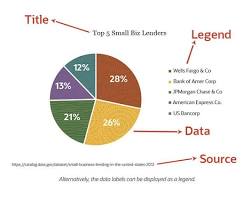
- Marketing: Courses in marketing fundamentals, consumer behavior, marketing research, and digital marketing will provide a strong understanding of marketing principles and best practices.
- Statistics: Statistics courses will equip you with the skills to collect, analyze, and interpret data. This includes understanding statistical concepts like hypothesis testing, regression analysis, and data visualization.
- Computer Science: While not essential for all roles, some understanding of computer science can be beneficial. This could include basic programming skills (e.g., Python, SQL) and knowledge of database management systems.
Additional factors to consider:
- Portfolio: Showcase your analytical skills by building a portfolio of projects where you’ve applied data analysis to solve marketing problems. This could include personal projects, freelance work, or coursework projects.
- Internships: Gain valuable real-world experience through internships with marketing agencies or companies with strong digital marketing presences.
Remember, the specific educational requirements will vary depending on the job you’re applying for. However, by focusing on relevant coursework, certifications, and practical experience, you can increase your chances of landing your dream job in digital marketing analytics.
Responsibilities in Digital Marketing Analytics Jobs
Digital marketing analysts wear many hats! They act as data detectives, strategists, and communicators, ensuring data-driven marketing campaigns. Here’s a closer look at their key responsibilities:
1. Collecting and Analyzing Data

- This is the foundation of everything! Analysts gather data from various sources like website analytics tools (e.g., Google Analytics), social media platforms, email marketing platforms, and marketing automation software. They sift through this data to identify trends, patterns, and customer behavior insights.
2. Interpreting Data to Make Strategic Decisions
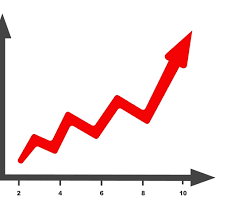
- Data doesn’t speak for itself. Analysts use their expertise to translate complex data sets into actionable insights. They identify areas for improvement, recommend campaign optimizations, and inform broader marketing strategies based on their data-driven findings.
3. Creating Reports and Dashboards
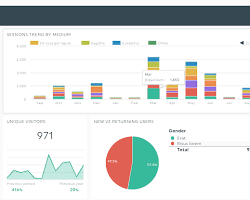
- Effective communication is crucial. Analysts create clear and concise reports and dashboards to present their findings to stakeholders. These reports use data visualizations (charts, graphs) to make complex information easily understandable for audiences with varying levels of data literacy.
4. Implementing Tracking Systems
![]()
- Measurement is key to success! Analysts set up website tracking mechanisms (e.g., event and conversion tracking) to monitor campaign performance. They ensure data is being collected accurately to provide reliable insights.
5. Collaborating with Marketing Teams

- Digital marketing analytics is a team sport. Analysts work closely with marketing teams (e.g., content creators, social media managers) to share data insights and translate them into actionable marketing strategies. This collaborative approach ensures marketing efforts are optimized for better results.
By mastering these responsibilities, you’ll be well on your way to becoming a valuable asset in the world of digital marketing analytics.
Career Growth Opportunities in Digital Marketing Analytics Jobs
The field of digital marketing analytics offers exciting opportunities for career growth. With experience and skill development, you can progress your career in various directions. Here’s a glimpse into what the future holds:
1. Senior Analyst Positions

As you gain experience and expertise, you can transition into senior analyst roles. These positions involve taking on greater responsibility, such as:
- Leading complex data analysis projects
- Mentoring junior analysts
- Developing and implementing data-driven marketing strategies
- Presenting data insights to senior management
2. Managerial Roles

For those with leadership aspirations, managerial roles offer a fulfilling path. You’ll oversee a team of digital marketing analysts, guiding them in their work and ensuring efficient project delivery. Responsibilities may include:
- Team management and development
- Setting team goals and priorities
- Client management (if working in an agency)
- Budget management
3. Specialized Areas Within Analytics
The digital marketing landscape is vast, and so are the areas where your analytics expertise can be applied. You can choose to specialize in specific areas like:
- SEO Analytics: Focusing on website optimization and search engine ranking strategies.
- PPC Analytics: Deep diving into paid advertising campaign performance and optimization.
- Social Media Analytics: Specializing in analyzing social media data to optimize social media marketing efforts.
- Marketing Automation Analytics: Analyzing data from marketing automation platforms to improve campaign performance and lead nurturing strategies.
These are just a few examples, and the possibilities are constantly evolving. By focusing on a specific area of interest, you can become a highly sought-after expert in your chosen field.
Remember, continuous learning is key to staying ahead of the curve in this dynamic field. Embrace new technologies, platforms, and analytical tools to keep your skillset sharp and propel your career to new heights!
Salary Range for Digital Marketing Analysts Jobs
The world of digital marketing analytics offers promising career prospects, and compensation reflects that! Here’s a breakdown of what you can expect to earn:
Factors Influencing Salary
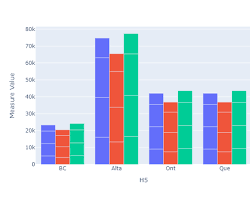
Several factors influence a digital marketing analyst’s salary. Here are some key considerations:
- Experience: As with most professions, salary increases with experience. Entry-level analysts can expect a lower starting salary, while senior analysts with proven track records will command higher salaries.
- Location: Cost of living plays a role. Salaries tend to be higher in major metropolitan areas compared to smaller towns.
- Industry: The industry you work in can also affect your salary. Certain industries, such as technology or finance, may offer higher salaries for digital marketing analysts.
- Company Size: Larger companies with bigger budgets often have more resources to offer competitive salaries.
- Skillset: Your specific skillset and certifications can also impact your earning potential. Analysts with specialized skills in areas like SEO or social media analytics may command higher salaries.
Average Salaries in Different Locations
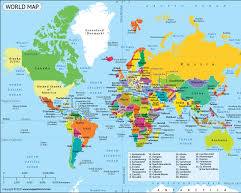
Here’s a ballpark range for average digital marketing analyst salaries in different regions (remember, this can vary depending on the factors mentioned above):
- United States: $60,000 – $100,000+ per year
- United Kingdom: £35,000 – £70,000+ per year
- Australia: AU$70,000 – AU$120,000+ per year
- India: ₹500,000 – ₹1,300,000+ per year (This translates to roughly USD $6,250 – $16,250 per year)
Remember, these are just averages, and your specific salary may fall outside these ranges. Salary websites like Glassdoor or Indeed can provide more specific data based on your location, experience, and skillset.
With hard work, dedication, and continuous learning, you can position yourself for a successful and rewarding career in digital marketing analytics!
How to Land a Digital Marketing Analytics Jobs
So you’re interested in launching a career in digital marketing analytics? That’s fantastic! The good news is there are steps you can take to increase your chances of landing your dream job. Here are some key strategies:
1. Building a Strong Portfolio
In today’s digital world, a strong portfolio is your golden ticket. It showcases your skills and demonstrates your ability to apply data analysis to real-world marketing problems. Here’s how to build an impressive portfolio:
- Personal Projects: Don’t have formal work experience yet? No problem! Create your own projects. Analyze a website you frequent, develop a social media marketing strategy for a local business, or conduct a competitor analysis.
- Freelance Work: Offer freelance services to small businesses or startups to gain practical experience and build your portfolio.
- Kaggle Competitions: Participate in data analysis competitions on platforms like Kaggle. This allows you to test your skills against others and showcase your problem-solving abilities.
2. Networking in the Industry
Building connections is crucial! Here are some ways to network in the digital marketing analytics industry:
- Attend Industry Events: Conferences, workshops, and meetups offer excellent opportunities to connect with professionals in the field.
- Join Online Communities: Connect with other aspiring and experienced digital marketing analysts through online forums, groups, and social media communities like LinkedIn.
- Informational Interviews: Reach out to professionals working in digital marketing analytics for informational interviews. Ask questions about their career paths and gain valuable insights.
3. Continuous Learning and Upskilling
The digital marketing landscape is constantly evolving. Stay ahead of the curve by continuously learning and upskilling yourself. Here are some ways to do that:
- Online Courses: Numerous online platforms offer courses and certifications in digital marketing analytics, SEO, social media analytics, and other relevant areas.
- Industry Blogs and Publications: Stay updated on the latest trends and best practices by reading industry blogs, articles, and white papers.
- Take Advantage of Free Resources: Many free resources are available online, like webinars, tutorials, and ebooks, to help you learn new skills.
By following these strategies, you’ll be well-positioned to land a job in the exciting and rewarding field of digital marketing analytics. Remember, the key is to showcase your passion, demonstrate your skills, and continuously learn to stay ahead of the curve. Good luck!
Conclusion: A Rewarding Career Path in Digital Marketing Analytics Jobs
The world of digital marketing analytics offers a dynamic and exciting career path for those who are passionate about data and marketing. By combining analytical skills with marketing knowledge, you can play a crucial role in helping businesses achieve their marketing goals.
This guide has provided a comprehensive overview of digital marketing analytics jobs, from the different specializations to the skills required and the career growth opportunities.
Here are some key takeaways to remember:
- Digital marketing analytics is essential for any business that wants to succeed in the digital age.
- There are various specializations within digital marketing analytics, allowing you to tailor your career path to your interests.
- A strong foundation in analytical skills, technical skills, communication skills, and creativity is essential for success.
- Educational background and relevant experience can give you a competitive edge in the job market.
- Digital marketing analysts have diverse job responsibilities, from collecting data to creating reports and collaborating with marketing teams.
- The field offers promising career growth opportunities, with options to progress into senior positions, managerial roles, or specialized areas.
- Building a strong portfolio, networking in the industry, and continuously learning are key strategies for landing your dream job.
If you’re looking for a challenging and rewarding career that allows you to make a real impact, then digital marketing analytics might be the perfect fit for you. With dedication and the right approach, you can unlock exciting opportunities in this ever-evolving field.
FAQs
Q. What qualifications do I need for a career in digital marketing analytics?
A. While specific requirements may vary, a background in fields such as marketing, statistics, or computer science, along with relevant certifications, can enhance your prospects.
Q. What skills are essential for success in digital marketing analytics jobs?
A. Analytical skills, technical proficiency, communication abilities, and creativity are all crucial for excelling in digital marketing analytics roles.
Q. What industries are hiring digital marketing analysts?
A. Digital marketing analysts are in demand across various sectors, including e-commerce, technology, healthcare, finance, and entertainment.
Q. What are the salary prospects for digital marketing analysts?
A. Salaries for digital marketing analysts vary based on factors such as experience, location, and industry, with average annual earnings ranging from $50,000 to $100,000.
Q. What are some emerging trends in digital marketing analytics?
A. Trends such as artificial intelligence, machine learning, and predictive analytics are shaping the future of digital marketing analytics, offering exciting opportunities for professionals in the field.